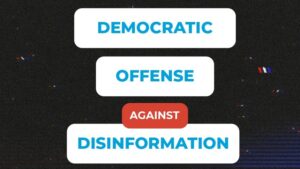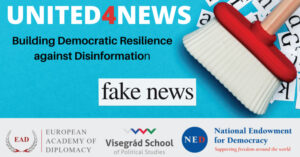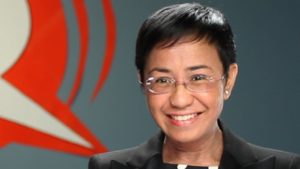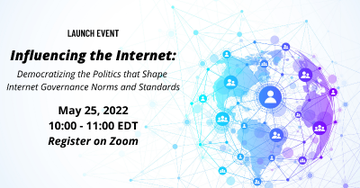 Like Ukraine, the post-Communist countries that joined the E.U. and NATO in the 1990s and 2000s have experienced interference in their domestic politics, energy policy blackmail and disinformation campaigns coming from Russia, but their integration in Euro-Atlantic institutions has protected them from an invasion, according to Maria Popova, an associate professor of political science at McGill University, and Nikolay Marinov, a professor of political science at the University of Houston.
Like Ukraine, the post-Communist countries that joined the E.U. and NATO in the 1990s and 2000s have experienced interference in their domestic politics, energy policy blackmail and disinformation campaigns coming from Russia, but their integration in Euro-Atlantic institutions has protected them from an invasion, according to Maria Popova, an associate professor of political science at McGill University, and Nikolay Marinov, a professor of political science at the University of Houston.
The war in Ukraine is already leading to greater awareness of Russia’s interference — through disinformation and other means — in Eastern European countries. This focus is also likely to create pro-European majorities across the region, perhaps with the exceptions of Hungary and Serbia, they write for The Washington Post.
 The dangers to democracy posed by new information technologies, which include the migration of bad civil society online, are largely due to the motives of bad actors employing the authoritarian playbook rather that the platforms they exploit, Simone Chambers and Jeffrey Kopstein argue in a new analysis, Wrecking the public sphere: The new authoritarians’ digital attack on pluralism and truth.
The dangers to democracy posed by new information technologies, which include the migration of bad civil society online, are largely due to the motives of bad actors employing the authoritarian playbook rather that the platforms they exploit, Simone Chambers and Jeffrey Kopstein argue in a new analysis, Wrecking the public sphere: The new authoritarians’ digital attack on pluralism and truth.
Disinformation will be a focus of the new Center for Information, Democracy, and Citizenship, which will serve as a regional center of excellence to confront and overcome threats to democracy, Assistant Secretary of State Karen Donfried told the American University of Bulgaria. The CIDC will generate new research and insights into perennial challenges, as well as new dynamics such as cybersecurity, disinformation, and digital media.
 To address the information chaos and violations of the right to information, Reporters Without Borders (RSF) has revised its mandate and theory of change with the goal of achieving effective protection of the right to information, notes RSF Secretary General Christophe Deloire. Naming and shaming needs to be complemented by direct engagement with the highest decision makers, with very concrete assistance in the field and, ultimately, with strategic litigation in courts, he told the World Economic Forum in Davos today:
To address the information chaos and violations of the right to information, Reporters Without Borders (RSF) has revised its mandate and theory of change with the goal of achieving effective protection of the right to information, notes RSF Secretary General Christophe Deloire. Naming and shaming needs to be complemented by direct engagement with the highest decision makers, with very concrete assistance in the field and, ultimately, with strategic litigation in courts, he told the World Economic Forum in Davos today:
Overcoming the information chaos also implies proposing structural, standard-based and political solutions for democratic guarantees to be adopted for the global space of information and communication. Accordingly, RSF initiated the Partnership on Information and Democracy. To date, 45 states have committed to create a civil society-led implementation body, and will launch an Observatory on Information and Democracy, which will be to the field of information what the IPCC is to climate change.

Maria Ressa
Seven prominent figures will define the Observatory’s objectives, methodology, and resources:
- Virgilio Almeida, Emeritus Professor, Department of Computer Sciences, Federal University of Minas Gerais
- Jim Balsillie, Founder of BlackBerry
- Jean-Marie Guéhenno, Diplomat, former UN Under-Secretary-General
- Elsa Pilichowski, Director for Public Governance, OECD
- Miguel Poiares Maduro, Chair, European Digital Media Observatory (EDMO)
- Maria Ressa, CEO of Rappler and 2021 Nobel Peace Laureate
- Burhan Sönmez, President, PEN International
A market-based solution, the Journalism Trust Initiative (JTI), will create a certification process for trustworthy information sources to be rewarded for abiding by rigorous journalistic standards with facilitated access to corporations’ advertising funding, public and philanthropic funding and search engine amplification, Deloire adds. RTWT
 The National Endowment for Democracy’s International Forum for Democratic Studies seeks a Program Assistant /Assistant Program Officer to work on two priority areas: safeguarding information space integrity and leveraging emerging technology for democracy. Further details here.
The National Endowment for Democracy’s International Forum for Democratic Studies seeks a Program Assistant /Assistant Program Officer to work on two priority areas: safeguarding information space integrity and leveraging emerging technology for democracy. Further details here.
A new report from the National Democratic Institute – Influencing the Internet: Democratizing the Politics that Shape Internet Governance Norms and Standards – explores barriers for organizations and individuals from the Global South to meaningfully participate in the development of internet norms, policies, and standards. NDI outlines recommendations for donors, development agencies, governments, activists, civil society organizations, internet governance institutions, and the private sector to improve coordination and make meaningful progress towards more inclusive processes.
Panelists:
Stephanie Perrin, Advisor, Electronic Privacy Information Center
Richard Hill, President, Association for Proper Internet Governance
Tomslin Samme-Nlar, Vice Chair, Generic Names Supporting Organization (GNSO) Council, Internet Corporation for Assigned Names and Numbers (ICANN)
May 25, 2022 10:00 AM in Eastern Time (US and Canada) RSVP
The #Philippines has become more vulnerable to fake news and internet propaganda over time, a #FactsFirstPH study finds, @rapplerdotcom reports https://t.co/5FZjGBFPX4
— Democracy Digest (@demdigest) May 23, 2022







